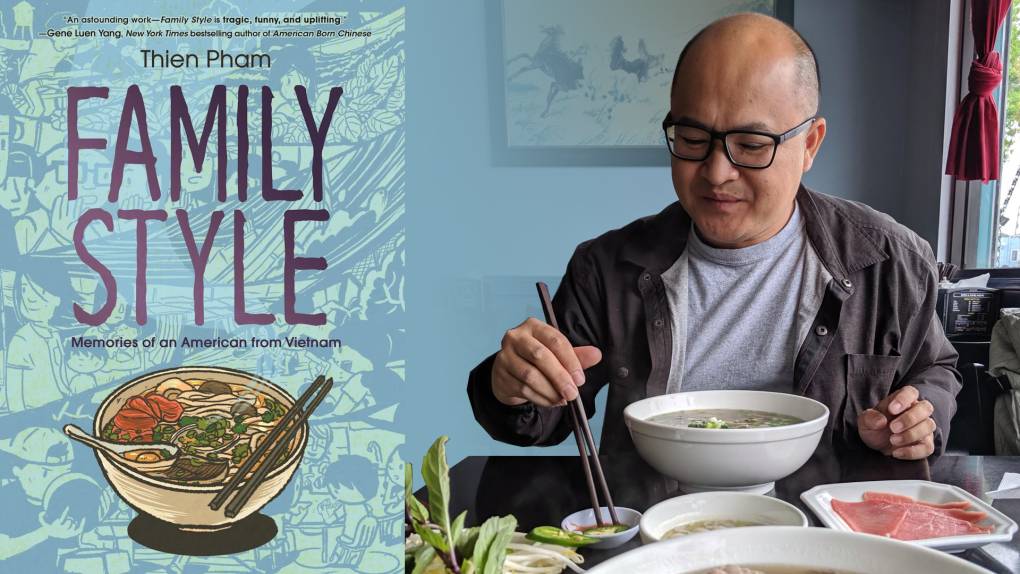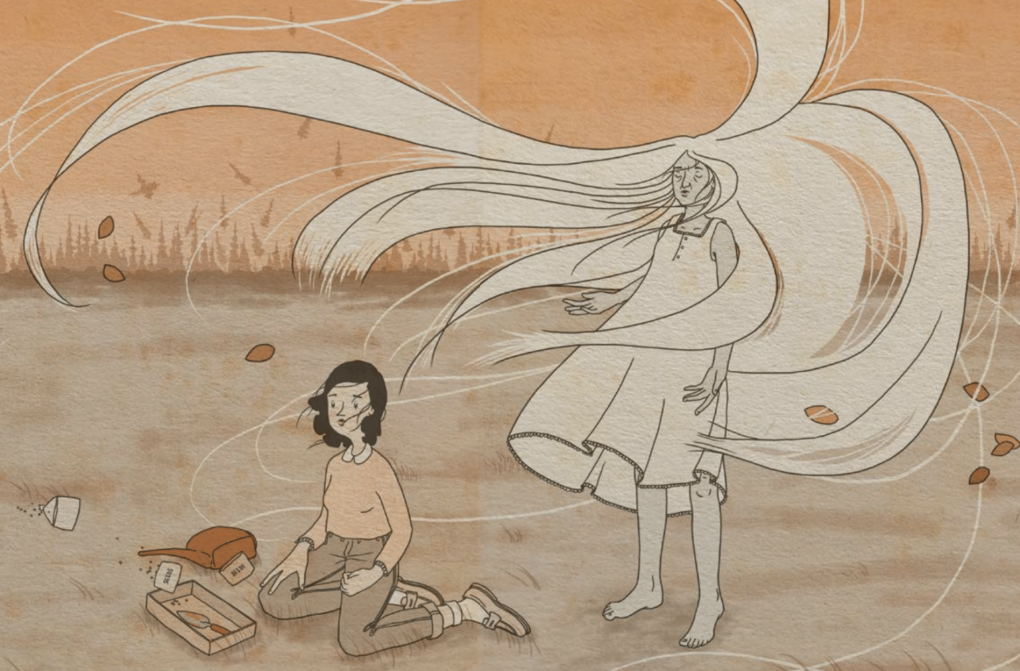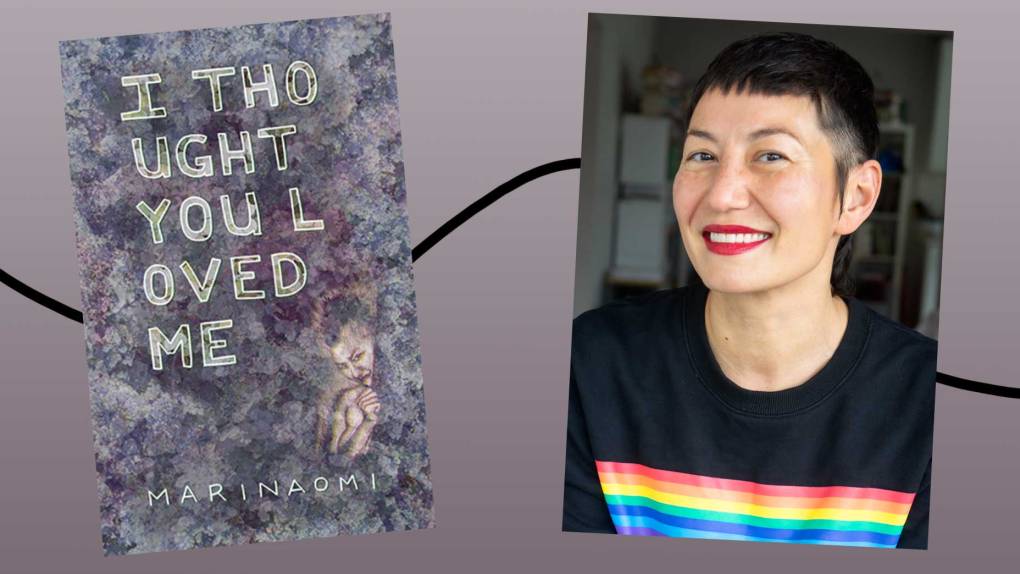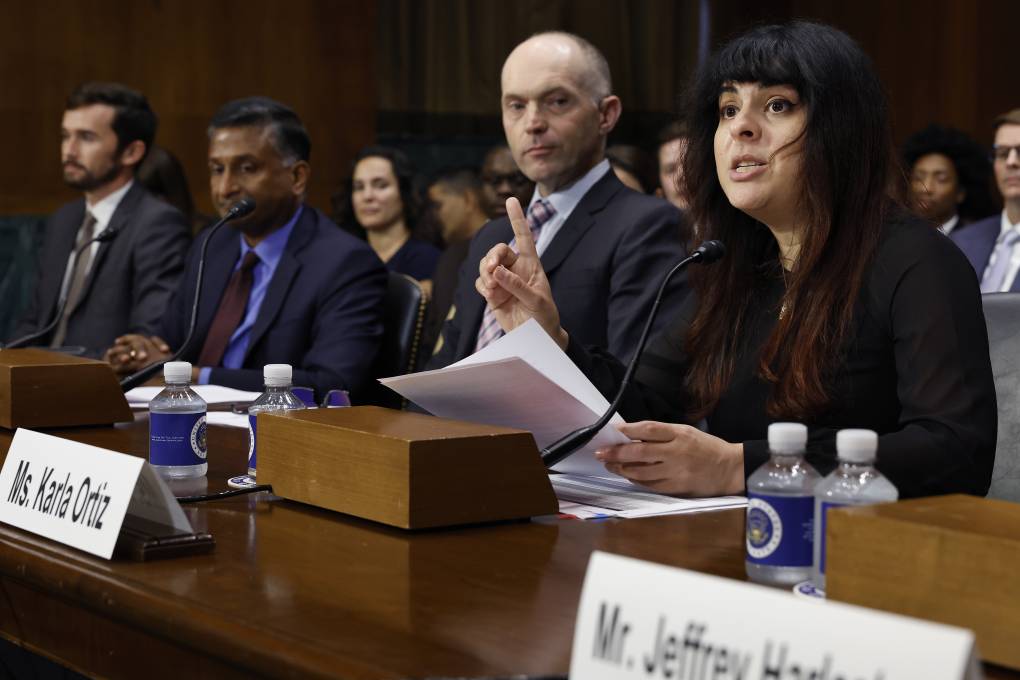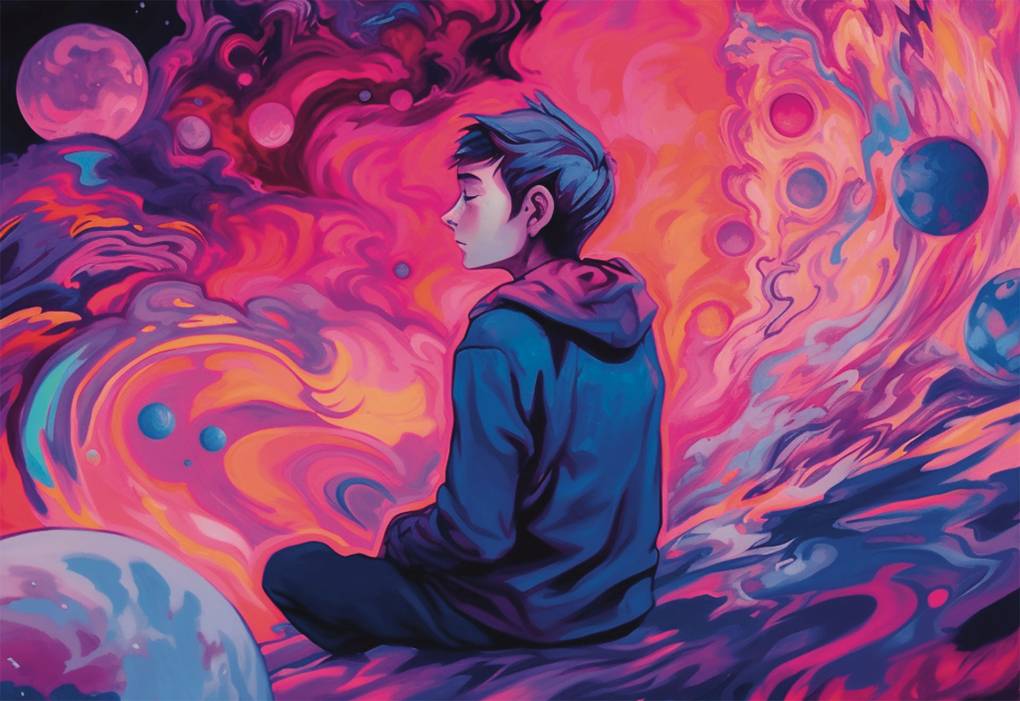Connection is simultaneously the text and subtext of New Yorker cartoonist Amy Kurzweil’s new graphic memoir, Artificial: A Love Story, in which she writes, “to be loved is to be known.” The book is an exploration of her patrilineal line. Her father, futurist Raymond Kurzweil, is a solution-oriented inventor invested in overcoming mortality. His father, Fritz “Fred” Kurzweil, was a Jewish conductor and pianist who fled from Vienna to America in the 1930s.
Amy Kurzweil Reaches Back in Time Through Graphic Memoir and AI Chatbot
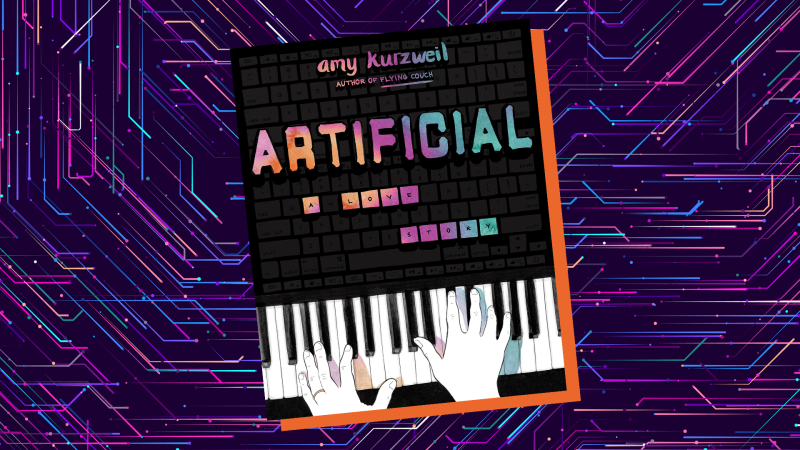
Father and daughter often team up on creative projects together. Artificial documents the time Ray recruited Amy’s help on an ongoing invention, an AI chatbot project that feeds Fred’s memories (as collected in fragmented journals) into an algorithm with hopes of allowing his descendants to have real-time conversations with him. The “Dadbot” project prompts Amy Kurzweil to wrestle with the question of whether it is possible to know and feel connected to someone you’ve never met — in this case someone who has passed. In that way, as the title states, this is a love story.
Artificial is the second graphic memoir from Kurzweil, who recently moved from New York to San Francisco with her husband. Flying Couch (2016) examined three generations of women in her family: Kurzweil, her mother and grandmother. “Focusing on my family history helps me speak more universally,” Kurzweil explains.
Kurzweil’s desire to know her grandfather runs parallel to Ray’s desire to resurrect his father, though their dissimilar professions drive them to seek answers through very different means. Where Ray uses technology, Kurzweil turns to art and storytelling. As Kurzweil works on the chatbot alongside her father — not by nature an emotionally forthcoming man — her knowledge of him deepens.
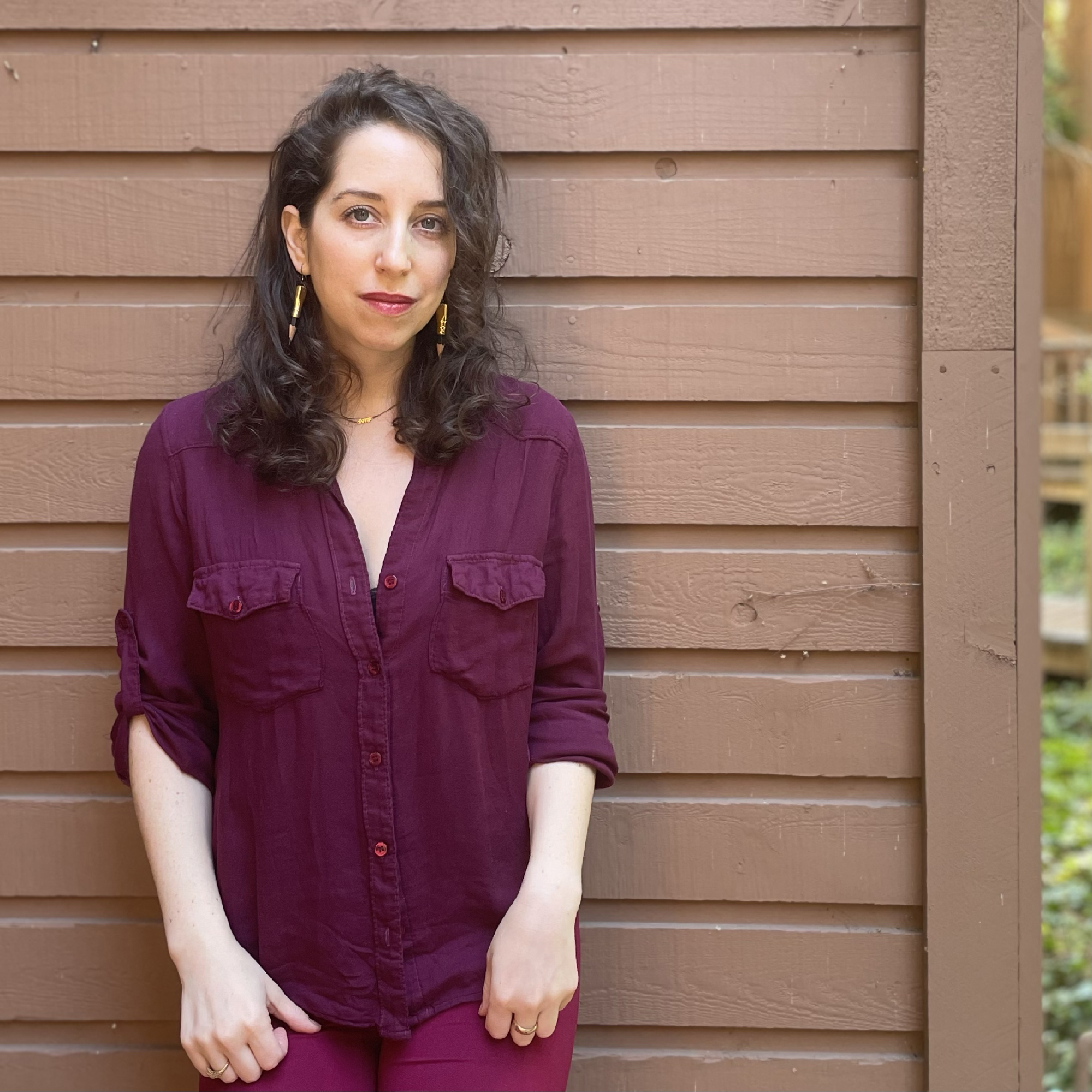
The memoir charts both her quest for intimacy and her changing understanding of it. “Can I know Fred like I know a language?” Kurzweil asks in the memoir. “Like I know a book? Like I know a person?” She is interested in the depths of knowing, which also encompasses the limits of knowing.
In a telling panel, Kurzweil asks her father why he originally saved Fritz’s papers, whether he had intended on reviving him via an AI avatar all along. He responds that he simply viewed them as precious. “We are patterns of information: our skills, our personalities,” Ray explains. “You could see that negatively, like we’re just information. Or you could see it positively, like, information is spiritual.”
The book is drawn entirely in black, white and gray, a preference Kurzweil says stems from her belief that “comics work with projection, and sometimes the less you give people, the more they can imagine.”
“Paradoxically,” she explains, “having a grayscale helps people view the world with more color in their minds.”
Artificial is a product of rapt observation. This is clear in the thoroughness of each panel’s details. Kurzweil meticulously reproduces the books on her desk (Sherry Turkle’s Alone Together, Alison Bechdel’s Fun Home), the wide-set half-cursive of her grandfather’s handwritten letters and extracts from her husband’s copy of Plato’s Symposium, with both the text and his enthusiastic underlining and doodling reproduced.
Cities too are rendered in personalizing detail. San Francisco, where her father also lives part time, is brought to life via the interior of the Powell Street BART station, the exteriors of Philz Coffee and Aardvark Books, the skyline seen from Dolores Park. Her illustrations suggest a worldview that sees life as information.
Like her father, Kurzweil thinks information is precious, but details also serve an objective. “I wanted to have these three different styles to code for these three different kinds of memory that I’m working with in the book,” she explains of the choice. “The realistic style codes for documents that I really have in my possession.” Fritz’s patient slips, correspondence with various colleges when he was seeking employment in New York and press clippings reviewing his symphony conducting — she reproduces all with rigorous precision, down to the font and faded stamps.
Kurzweil uses a “cartoonish grayscale” (glimpsed in her work for The New Yorker) when depicting her own memories. “That style is more minimal because I’m allowing the reader to imbue it with their own imagination, allowing them to animate the figures in their own mind and signaling that memory includes a lot of gaps,” she explains.
Kurzweil describes her third style as “high contrast black and white,” which is used to depict events and people she did not directly witness — like her grandfather’s time in Vienna, pieced together through his journals and marriage and academic records. The drawings are fabricated amalgams of real places and an imagined life. Conversations with a future, more seamless chatbot get the same treatment.
Each of the styles performs a taxonomic function, but the care of separating them, of acknowledging that “memory is more art than science,” as she writes, reveals something else. Kurzweil’s attentiveness is an act of devotion.
Artificial is an art book about AI arriving at a time when the two fields are in intense conflict. Kurzweil admits AI is “a huge topic.” Some of its biggest detractors — artists and authors furious that their work is being used to train AI without their consent — are frustrated with the implications for their professions.
“The problems in AI are not just about AI,” Kurzweil notes, “They have to do with the way AI is being used to make money for some people and not for others. I certainly have a lot of critiques of that model for AI, but I don’t think that AI is one thing.”
Artificial invites readers to view AI as a potential bridge. “My book engages with an instance of AI that is more personal and intimate,” she says. It is her hope “that the book can be a positive instance of complex, interesting, inspiring technology that’s used in a direction that’s more human.”

‘Artificial: A Love Story’ is out Oct. 17, 2023. Amy Kurzweil will be on a LitQuake panel with Fred Noland, Thien Pham and Julia Wertz on Saturday, Oct. 14 at 12 p.m. at the San Francisco Public Library’s Koret Auditorium. Booksmith hosts a launch event on Tuesday, Oct. 17 at 7 p.m. with Kurzweil and Daniel Gumbiner.
